
A DIY approach to flying: Local pilots build and help build their own aircraft
If you build it … you can fly it, too.As Peter Elsea and Jason Lorusso have discovered in recent years, there’s a special satisfaction in building your own plane — or at least assisting in that construction — that can make the experience of flying...

Sharing a few notes: High schoolers coaching younger string players one on one
Carefully holding and balancing his violin, 12-year-old Heedo Noh, a Fort River School sixth grader, gets a suggestion for positioning the bow so it runs straight across the strings as he practices G.F. Handel’s “Chorus from Judas Maccabaeus.”“Good,”...
Most Read
 Granby Bow and Gun Club says stray bullets that hit homes in Belchertown did not come from its range
Granby Bow and Gun Club says stray bullets that hit homes in Belchertown did not come from its range
 Super defers Amherst middle school principal pick to successor; one finalist says decision is retaliation for lawsuit
Super defers Amherst middle school principal pick to successor; one finalist says decision is retaliation for lawsuit
 ‘Home away from home’: North Amherst Library officially dedicated, as anonymous donor of $1.7M revealed
‘Home away from home’: North Amherst Library officially dedicated, as anonymous donor of $1.7M revealed
 Political newcomer defeats Shores Ness for Deerfield Selectboard seat
Political newcomer defeats Shores Ness for Deerfield Selectboard seat
 A DIY approach to flying: Local pilots build and help build their own aircraft
A DIY approach to flying: Local pilots build and help build their own aircraft
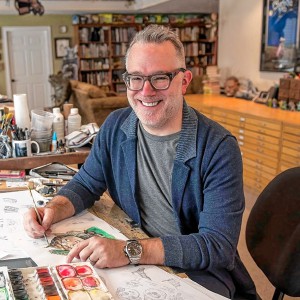 Back to the screen: Amherst authors’ popular ‘Spiderwick Chronicles’ gets a new streaming adaptation
Back to the screen: Amherst authors’ popular ‘Spiderwick Chronicles’ gets a new streaming adaptation
Editors Picks
 ValleyBike to roll again by end of May in eight communities throughout Valley
ValleyBike to roll again by end of May in eight communities throughout Valley
 Earth Matters: Honoring a local hero: After 40 years, Hitchcock Center bids farewell to educator and creative leader, Colleen Kelley
Earth Matters: Honoring a local hero: After 40 years, Hitchcock Center bids farewell to educator and creative leader, Colleen Kelley
 Valley writers shine in initial round of Mass Book Award competition: 12 area authors and author/illustrators long-listed for 2024 awards
Valley writers shine in initial round of Mass Book Award competition: 12 area authors and author/illustrators long-listed for 2024 awards
 Wheeling for Healing returns to South Deerfield to raise money for cancer treatment
Wheeling for Healing returns to South Deerfield to raise money for cancer treatment
Sports

The Real Score: Curveballs and casinos rarely save cities
About 10 years ago, the two major urban centers of central and western Massachusetts decided to engage in new regional industrial policy to spur on their local economies. Worcester and Springfield had been effectively hollowed out by decades of...
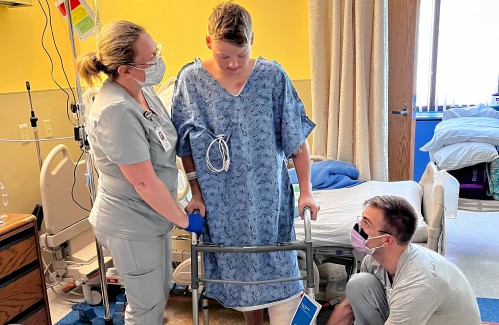 Defying the odds: Hadley’s Owen Earle back competing less than two years removed from horrific accident
Defying the odds: Hadley’s Owen Earle back competing less than two years removed from horrific accident
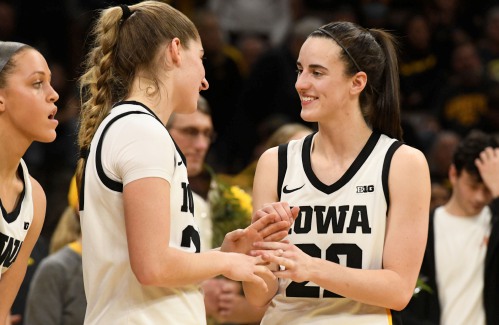 Guest columnist Karen List: A legend made in Iowa
Guest columnist Karen List: A legend made in Iowa
Opinion

Guest columnist Rudy Perkins: Dangerous resolution pins ‘aggression’ on Iran
Both the Iranian government’s bombing of Israel and the Israeli government’s bombing of Iran are extremely perilous for the Middle East and the United States. That is why the dangerously one-sided U.S. congressional resolution, H.Res. 1143,...
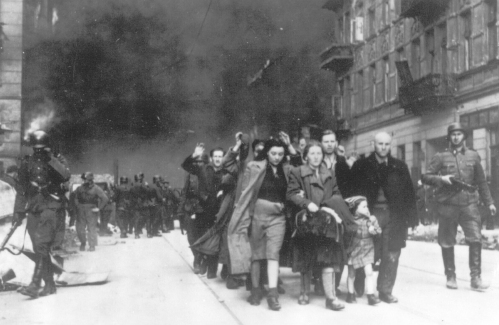 Richard S. Bogartz: What the ghosts of Warsaw Ghetto know
Richard S. Bogartz: What the ghosts of Warsaw Ghetto know
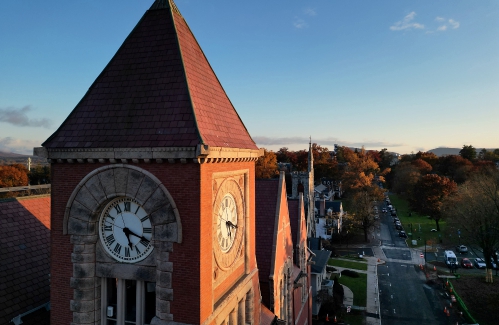 Guest columnist Ali Wicks-Lim: Racism is in our way
Guest columnist Ali Wicks-Lim: Racism is in our way

Arts & Life
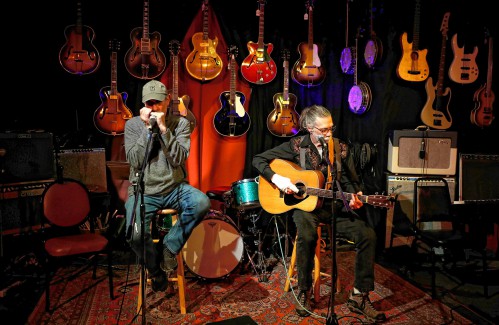
You’re up next: Western Mass open mic scene heats up post-pandemic
Not so long ago, there was a general lament sometimes heard among Valley musicians: “There aren’t enough places to play around here.”That might have been true for professional players who wanted to be paid — and maybe, despite the opening of new local...

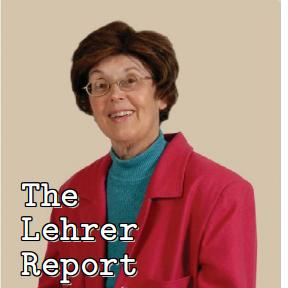
 Funding will limit ARHS track/field makeover to cheapest option
Funding will limit ARHS track/field makeover to cheapest option
 Town manager’s plan shorts Amherst Regional Schools’ budget
Town manager’s plan shorts Amherst Regional Schools’ budget
 New Hopkins Academy athletic fields nearing completion
New Hopkins Academy athletic fields nearing completion
 Ken Rosenthal: Time to change direction on Jones Library
Ken Rosenthal: Time to change direction on Jones Library
 Guest columnist Marietta Pritchard: Landlines and more in our parallel universe
Guest columnist Marietta Pritchard: Landlines and more in our parallel universe
 Guest columnist Dr. Meghan Gump: Dear Patients — We hear you!
Guest columnist Dr. Meghan Gump: Dear Patients — We hear you!
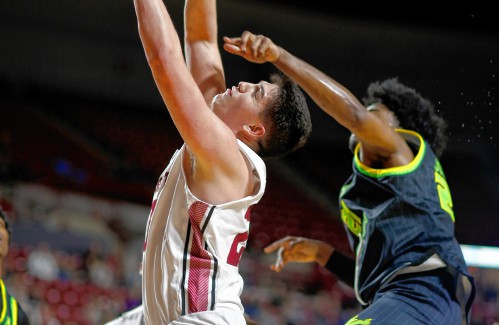 UMass basketball: Josh Cohen, Robert Davis Jr. first Minutemen to enter transfer portal
UMass basketball: Josh Cohen, Robert Davis Jr. first Minutemen to enter transfer portal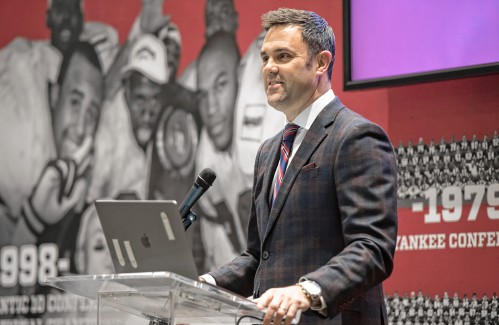 UMass confirms sports programs moving to the Mid-American Conference as it becomes 13th member
UMass confirms sports programs moving to the Mid-American Conference as it becomes 13th member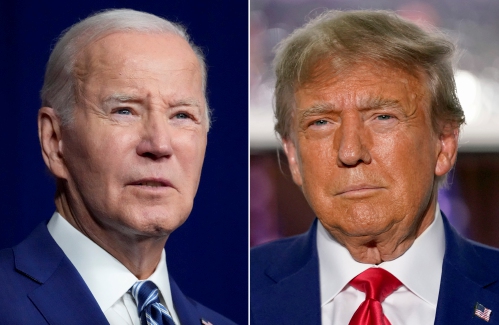 Guest columnist Dr. David Gottsegen: Age issue not so key as question of marbles
Guest columnist Dr. David Gottsegen: Age issue not so key as question of marbles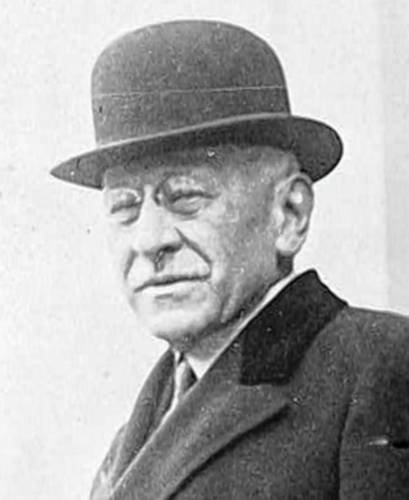 Guest columnist Martha Hanner: Spirit of philanthropy can uplift so many others
Guest columnist Martha Hanner: Spirit of philanthropy can uplift so many others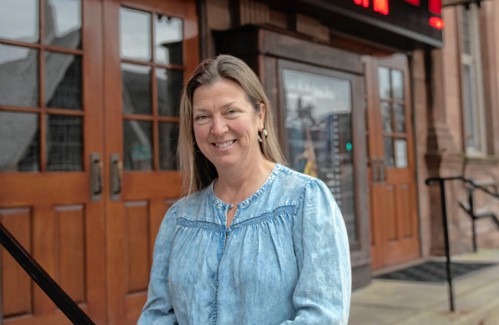 One upon a story slam: This year’s Valley Voices winners head to a final competition
One upon a story slam: This year’s Valley Voices winners head to a final competition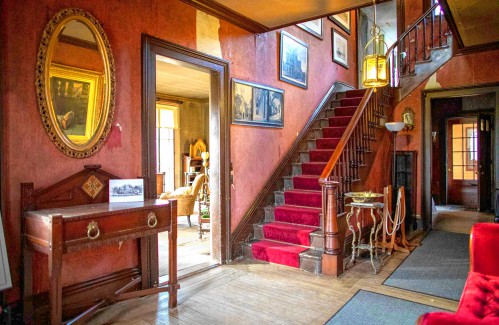 Preserving a key part of Emily Dickinson’s legacy: Historic Evergreens house reopens at the Emily Dickinson Museum
Preserving a key part of Emily Dickinson’s legacy: Historic Evergreens house reopens at the Emily Dickinson Museum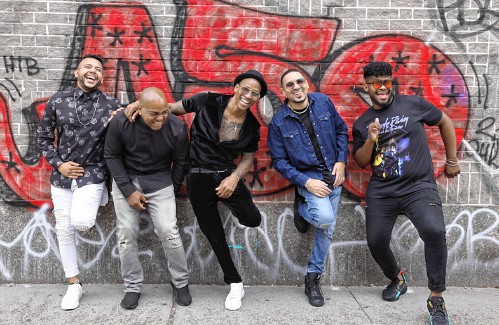 The Beat Goes On: Chamber music at The Drake, a Saint Patrick’s weekend musical smorgasbord, and more
The Beat Goes On: Chamber music at The Drake, a Saint Patrick’s weekend musical smorgasbord, and more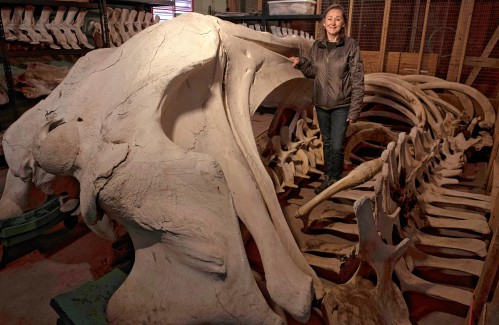 Speaker for the whales: Indigenous artist interprets endangered right whale’s legacy and meaning
Speaker for the whales: Indigenous artist interprets endangered right whale’s legacy and meaning